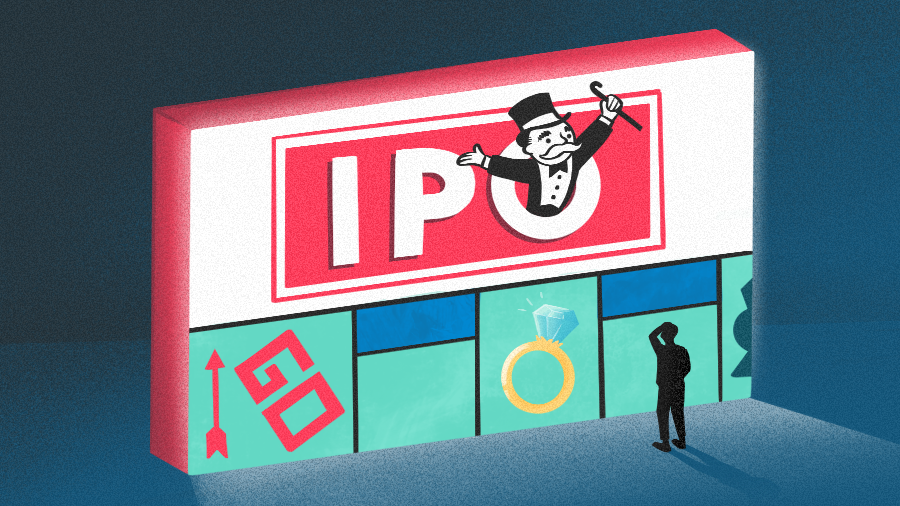Despite the COVID-19 pandemic, U.S. companies have rushed to hit the market in the second half of this year, putting 2020 on track to be perhaps the strongest IPO year ever.
Subscribe to the Crunchbase Daily
While taking a private company to the public markets is a big deal that comes with much fanfare at the stock exchanges and in the financial press, it also comes with a big price tag.
Beyond the one-time fees, there are a host of other costs that aren’t obvious, according to David Ethridge, PricewaterhouseCoopers’ deals managing director and U.S. IPO services leader.
PwC is typically involved with companies for one to two years prior to an IPO to help them determine what they need to do to be a public company. Being a public company has major implications for a company’s processes, systems and employees, such as the requirement to report financial information to shareholders every quarter.
“Normally that’s going to mean implementing systems and new processes that are going to make you effective as a public company, but would require you to do things that you would say ‘I don’t have to do that as a private company,’” Ethridge said.
For example, it could mean hiring an investor relations team and more people in tax areas. Those kinds of costs aren’t disclosed in filings or databases, as they’re more structural costs. Most companies currently use two accounting firms: an auditor and an advisory tax firm. While the auditor fees in context of the IPO will be disclosed, there’s often a second accounting firm that advises the company on aspects of the going-public process such as taxes, structuring, HR and compensation.
Underwriting fees also make up a good chunk of the costs associated with going public, and are often presented as one of the arguments in favor of direct listings, which offer an alternate route to the public markets.
The dollar value of an IPO is what will determine the bank fees: around 6.5 percent to 7 percent for a $100 million IPO. That percentage will get lower as the deal size increases, according to PwC, with deal sizes at $1 billion or larger having an average 3.5 percent underwriting fee. (PwC has an online calculator to help estimate some costs of an IPO).
An investment of time
One thing management teams often don’t anticipate is the time element of an IPO and how so many things are interconnected. Some elements of preparation for an IPO can be done while drafting an S-1 statement, but a lot needs to be done before sitting down with bankers because some elements can affect a company’s ability to deliver quarterly results, per Ethridge.
“I think sometimes the comprehensive nature of this is something some management teams are surprised by,” Ethridge said.
In the past, initial IPO conversations often took place three to six months before an IPO, according to Ran Ben-Tzur, a partner at law firm Fenwick & West, who advises on capital markets and public companies. Nowadays, however, the initial IPO conversations start about 18 months before a company’s public debut.
“Typically, the way I would think about it is once you’ve raised your mezzanine large financing … that typically starts the 18-month clock in terms of preparing for going public,” Ben-Tzur said.
Board composition requirements–such as California’s gender and diversity requirements–have increased the lead time to an IPO, he said, as companies are spending more time thinking about board recruitment, which can be a long and expensive process.
Toward the beginning of that 18-month time frame is when Fenwick advises companies about board composition, Ben-Tzur said. Law firms do the bulk of the work, like drafting registration statements, around three to five months before a company selects bankers for the IPO. According to Ben-Tzur, that’s when costs start to ramp up.
Law firm fees are somewhere around $1.7 million to $2 million for this type of transaction, and auditor fees are also around $2 million, Ben-Tzur added. Banks on a typical tech IPO charge a standard 7 percent commission on the proceeds raised.
Law firms and consultants also advise companies on compensation, communications, and on founder control, or helping founders figure out how they can potentially keep their long-term vision for a company following an IPO.
“I think it is important to note that it’s an expensive process. It’s a time-consuming process, but I think every company we’ve taken public, no one’s really regretted going through it,” Ben-Tzur said. “All of these processes and systems you’re putting into place to be a good public company are actually processes and systems you should put into place to be a good company.”
But companies should also weigh the pros and cons of going public, given how costly and time-consuming the process is, according to Stephen Curry, CEO of Endurance Advisory Partners.
“It’s important because at the end of the day you don’t want to go public and then not have the proper investor support to make sure your stock gets the attention it needs and to craft the story you need to be successful,” Curry said. “You don’t want to do it halfway and then run the risk of poor execution or a story that can’t be well-supported in the marketplace.”
Illustration: Dom Guzman

Stay up to date with recent funding rounds, acquisitions, and more with the Crunchbase Daily.



![Illustration of a suitcase stuffed with money. Megafunds [Dom Guzman]](https://news.crunchbase.com/wp-content/uploads/Megafunds-470x352.jpg)
![Illustration of a man sitting on a huge pile o' money. [Dom Guzman]](https://news.crunchbase.com/wp-content/uploads/Giant_Funding-470x352.jpg)
![Illustration of agentive AI brain - Europe - Quarterly. [Dom Guzman]](https://news.crunchbase.com/wp-content/uploads/Agentive_AI_europe-470x352.jpg)
![Illustration of a guy watering plants with a blocked hose - Global [Dom Guzman]](https://news.crunchbase.com/wp-content/uploads/quarterly-global-3-300x168.jpg)
67.1K Followers